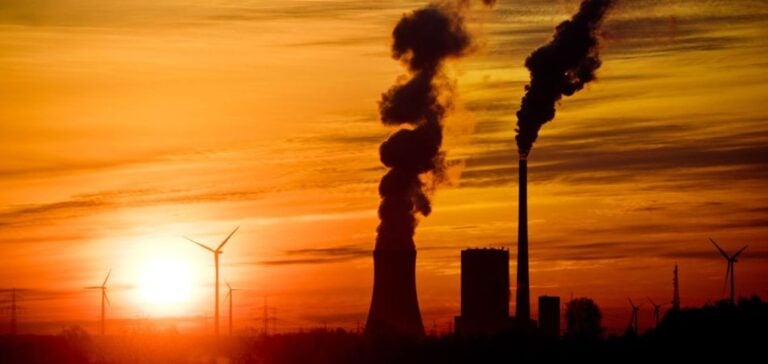France’s two coal-fired power plants have been granted permission to operate for longer to avoid any winter blackouts, until the end of 2024, through a temporary relaxation of greenhouse gas emission standards, the Ministry of Energy Transition said on Thursday.
Ensuring power generation during winter: Relaxation of emissions standards
Next winter, “we anticipate a lower level of voltage” than last year, “but as a precaution, we are taking all measures to ensure French electricity production”, says the Ministry.
The cap on greenhouse gas emissions applicable to energy producers is a result of the French Climate Law.
It has now been raised to “1.8 kilotons of carbon dioxide equivalents per megawatt of electrical power installed between April 1, 2023 and December 31, 2024”, according to a decree published Thursday in the Journal Officiel.
This will allow “power plants to operate for an additional 500 hours” over the period, compared with the 1,300 hours initially authorized, until the end of 2024, as specified in the public consultation from which the decree was issued.
These 1,800 hours correspond to 75 days of non-stop production.
Economic adaptation and environmental constraints of coal-fired power plants
In the winter of 2022-2023, coal-fired power plants were authorized to operate for 2,500 hours, or 104 continuous days.
“This ceiling gives us a very wide range of uses in the event of a major cold snap,” explains Julien Teddé, Managing Director of broker Opéra Energie.
“But coal-fired power plants are controlled by economic logic anyway,” he adds, even though they are very expensive to run.
At the same time, coal-fired power plants will have to pay more to offset their emissions. Each tonne of CO2 equivalent emitted will now cost them 50 euros instead of 40, according to the same decree. In France, two coal-fired power plants – Cordemais (Loire-Atlantique) and Saint-Avold (Moselle) – are still in operation in the event of peak electricity demand. Last year, they accounted for 0.6% of France’s electricity mix, which is largely dominated by nuclear power.






















